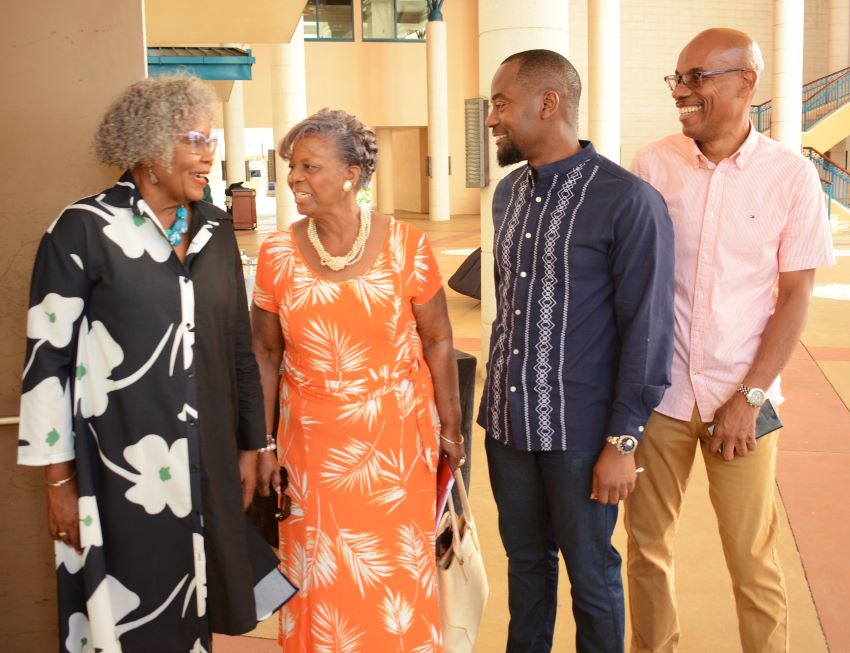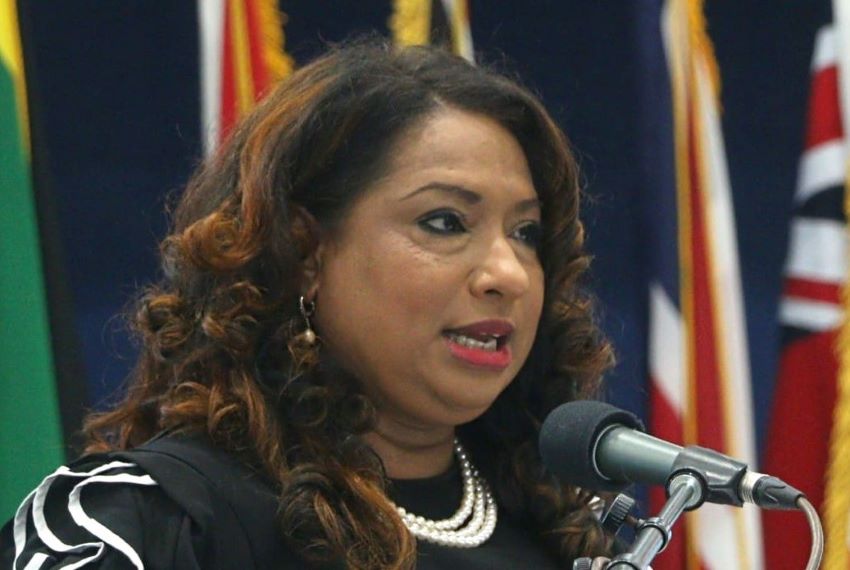With one in every five Barbadians now over age 60 and one in every four over 65 years, Minister of People Empowerment and Elder Affairs, Kirk Humphrey, believes this should cause “a bit of concern”.
He emphasised this last weekend while delivering the feature address at the conference titled ‘Towards 2050 Securing My Future Protecting My Legacy’, which was held jointly by his Ministry and the Barbados Association of Retired Persons, at the Hilton Barbados Resort, Needhams Point, St. Michael.
“It means that Barbados is actually getting older, at a rate that even though we anticipate it in ageing, it’s at a rate that we did not anticipate, and we must continue to plan for it,” said the Minister as he shared a “few thoughts” with participants.
Deeming the seminar as important, he said: “People may think that we are having this conversation because persons are now 40 to 59 years old, but I really think we need to have this conversation just because people are born and because we’re here. And, the reality of planning for getting older should begin from the day you were born. And the reason that most of us find ourselves in a spot of bother is because we don’t start the plan from the day we were born.”
While also stressing the future is not what it used to be, Mr. Humphrey said: “We had anticipated, as children, that when you get older that, as an older person, your children or your grandchildren would have taken care of you. We now know that that is not happening. Those systems have all been dissipated, and surely they have broken down.
“We anticipated that with a certain amount of older persons that the State would be in a position to do that. But at the rate at which we are ageing, the State will not be able to do it on its own. We expected that in our constituencies and in our communities, people would step up and take care of those who needed help the most. And, we’ve also seen that that is not happening. Therefore, the future that we had envisioned is not the future that we’re going to live. It requires that we start making substantial changes now.”
The Minister offered some suggestions to participants interested in planning for their retirement and an older age. Stating that it was not expected that persons would have a lot of money, he said: “But we do anticipate that people will have to be able to at least identify a family member or two, who they hope could help them as they get older. Or, if you get your gratuity payout, do not go and splurge.”
Also alluding to the role of the State, Minister Humphrey said it now also called for the State to find “a new way to be able to protect people, even in circumstances where they don’t recognise themselves, that they are being taken advantage of”.
Stressing it would require a conversation with the public as it required a relationship of trust, he added: “I think the relationship between BARP and the Government, between Soroptimist, between Red Cross, between any of the agencies that offer services to the public, for older persons for seniors must be built on trust.
“And, the Government will then continue to empower these organisations, but I feel that we now have to have a deeper trust relationship with the general public, so that we can encourage people and you know, to plan for their own retirement, to plan their future and so on.”
Participants were reminded that Government brought on 420 elder care workers to join the existing 200 home care workers that were at the National Assistance Board, that they have been doing a very good job in terms of taking care of some of the older persons.
However, Mr. Humphrey, lamenting that some families were no longer taking responsibility, said: “For this to work, we need everybody to be on the same page. And people have to take up their own responsibilities while the Government continues to be able to support it.”
Agencies which care for older persons were also placed on notice that Government would not entertain persons taking advantage of them.
Minister Humphrey stressed: “Let it be known that we have a zero-tolerance approach when it comes to anybody taking advantage of older persons, of our seniors, who would have done so much for us, and now in the golden years do not deserve a lot of the treatment that they are now getting….
“If a person has responsibility for taking care of a senior, but then they are borrowing money from that senior; that’s unacceptable. If you have responsibility for a senior and then you are taking the person’s pension check, you’re cashing it, many times without the consent of the family, that is unacceptable. If you go to the supermarket to shop for them and you also shop for yourself with their money without letting them know, it is unacceptable. ” (PR/GIS)
Caption: Minister of People Empowerment and Elder Affairs, Kirk Humphrey (second right) in conversation with BARP President, Marilyn Rice-Bowen (left), Special Advisor on Elder Affairs, Cynthia Forde (second from left), and Permanent Secretary, Ministry of People Empowerment and Elder Affairs, Jehu Wiltshire.

 Local1 week ago
Local1 week ago
 International3 weeks ago
International3 weeks ago
 Business3 weeks ago
Business3 weeks ago
 Tourism2 weeks ago
Tourism2 weeks ago
 Sports1 week ago
Sports1 week ago
 Government2 weeks ago
Government2 weeks ago
 Local3 weeks ago
Local3 weeks ago
 Government4 weeks ago
Government4 weeks ago































